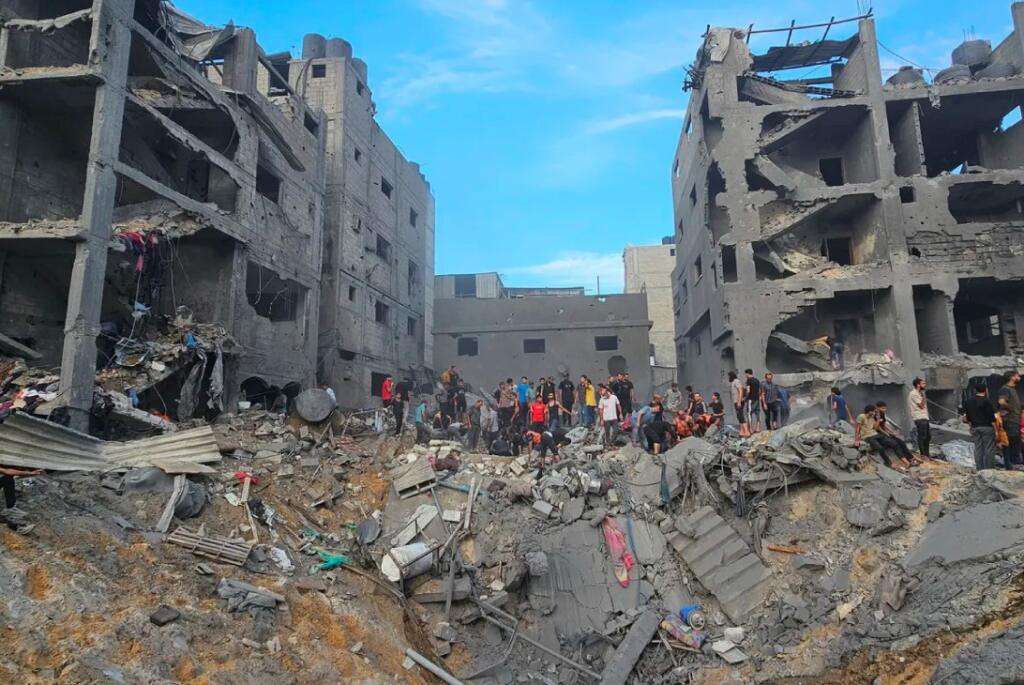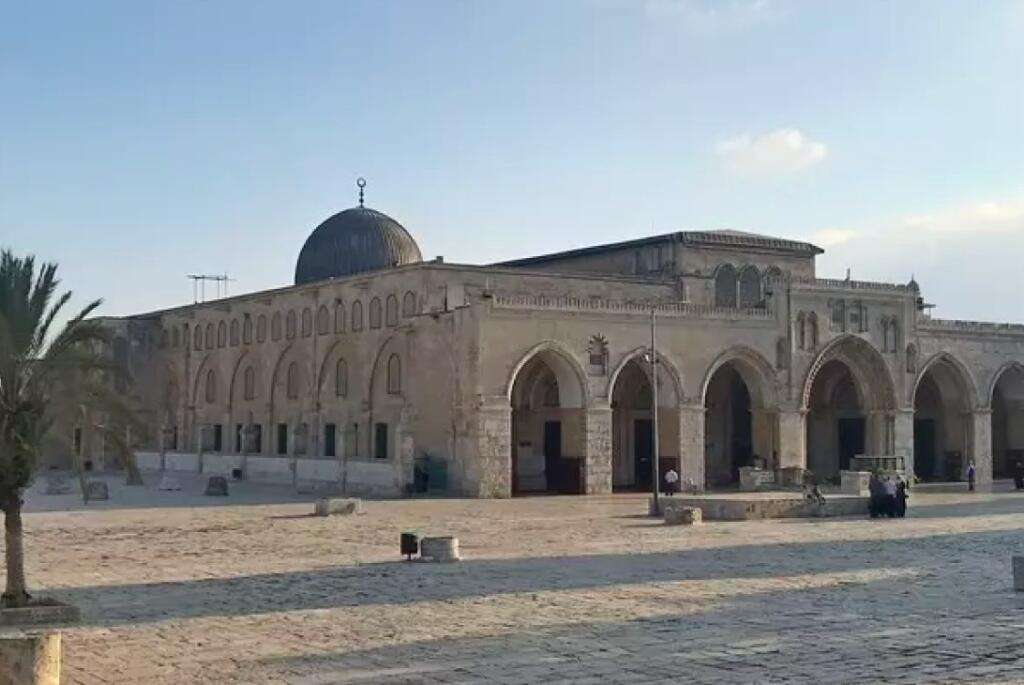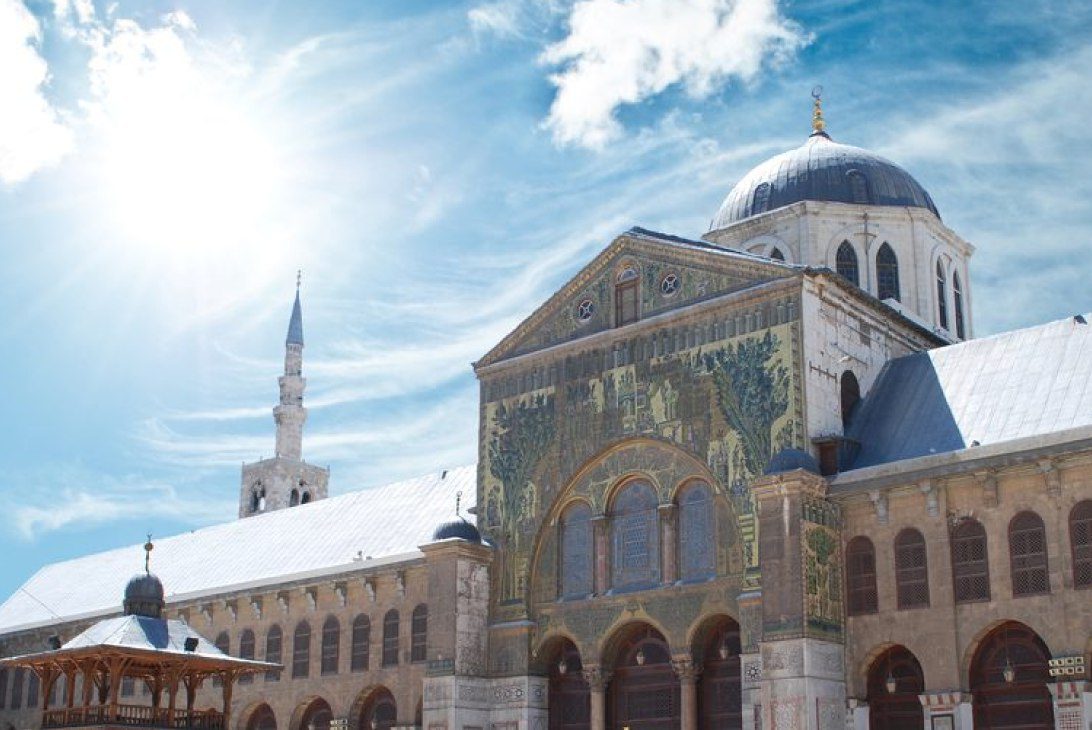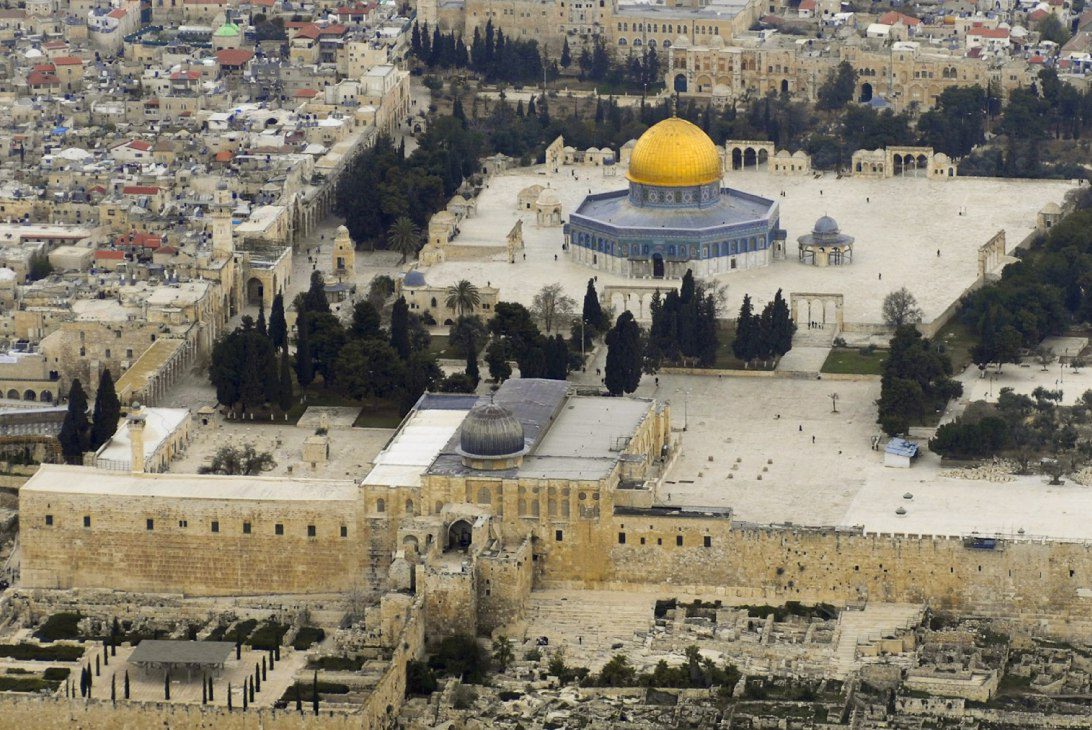Loyalty to the Believers is Part of Iman
Allah ﷻ says,
وَالْمُؤْمِنُوْنَ وَالْمُؤْمِنَاتُ بَعْضُهُمْ أَوْلِيَآءُ بَعْضٍ
“The believers, both men and women, are allies of one another…” (9:71).
Islam lays out clear principles that establish unity and loyalty between the believers. Being concerned, worried and anxious about the plight of Muslims far away is mandated in our noble religion and a clear marker of our faith.
The believers’ loyalty to one another must transcend geography, ethnicity, colour and friendship. It must be rooted in the inseverable bond of Islam through which Allah has guided and honoured mankind.
So whether it’s genocide in Gaza, floods in Libya, or massacres in Sudan, our response should be one and the same: repentance, duʿā’, and full mobilisation for our afflicted brothers and sisters.
Abū Mūsā (raḍiy Allāhu ʿanhu) reported that the Prophet ﷺ said, “Indeed, the believers are like bricks of a building, each one strengthening the other,” and he ﷺ clasped his fingers together. (Bukhārī)
It’s not enough to just feel sorrow and regret over oppressed Muslims. Rather we must strongly condemn any oppression inflicted upon the believers, and unstintingly raise awareness for any inundated by natural disasters. We must mobilise fully for them, both physically and spiritually, in order to release them from the terrible ordeal they are in and until their rights are retrieved.
Our beloved Messenger ﷺ gave a comprehensive guide on how to approach the rights of fellow believers when he said, “A Muslim is a brother of another Muslim: he does not oppress him, nor does he hand him over to an oppressor. Whoever fulfils the needs of his brother, Allah will fulfil his needs. Whoever relieves a Muslim from a hardship, Allah will relieve him from a hardship of the Day of Judgement. Whoever conceals the faults of a Muslim, Allah will conceal his faults on the Day of Judgement” (Bukhārī).
Here we see clear instruction from the Leader of mankind ﷺ on how to respond when a fellow Muslim is in need. He ﷺ didn’t advise us to offer mere donations, discarding it like dust under our nails, and then conveniently move on; nor did he ﷺ encourage just duʿā’ and then leaving it to Allah Alone. He ﷺ —whose supplications were never rejected — called for mobilisation, action and presence. And not just until we become tired, but until every right is restored.
Feel the Ummah’s Pain
The Messenger of Allah ﷺ said, “The parable of the believers in their affection, mercy, and compassion for each other is that of a body. When any limb aches, the whole body reacts with sleeplessness and fever” (Muslim).
How distressed are we when our head hurts, or when our teeth ache? We’ll likely complain to the first person we see, and hope our doctor swiftly prescribes something to quell the pain. There’s no ease until the pain subsides.
How is our reaction then when a part of the ummah is attacked, killed and imprisoned? Are we just as agitated when our brothers are tortured and our sisters are humiliated? Do we rush for answers and helpers to alleviate their suffering? Do we change our lifestyle, like a sick patient does, to stop the pain?
Our beloved Messenger ﷺ described his ummah as one physical body, where Muslims from across the world respond to the pain and suffering of Muslims in any particular region. They don’t allow artificial borders and fake inherited nationalism to hinder them in aiding those who need help.
Allah ﷻ says,
وَإِنِ اسْتَنصَرُوْكُمْ فِي الدِّيْنِ فَعَلَيْكُمُ النَّصْرُ
“But if they seek your help (against persecution) in faith, it is your obligation to help them…” (8:72).
If the Palestinians are in pain, then every Muslim is in pain; if the Uyghurs are being arrested, then every Muslim is the target; and if the Indian Muslims are lynched; then every Muslim is being abused. This is the reality of the parable that our beloved Messenger ﷺ used, and one which every believer should internalise within every fibre of their body.
Saʿīd al-Kalbī (rahimahullah) used to weep during cold nights. When he was asked about this, he said: “I thought about the poor amongst the Ummah of Muḥammad ﷺ during this night, and I cried out of compassion for them.”
The Pain Felt By Allah’s Messenger ﷺ
The Messenger of Allah ﷺ was the most sensitive to the feelings and pain of others. Once a group of Bedouins in tattered clothes approached him. Their poverty was severe; they were barefooted and almost naked. When the Prophet ﷺ saw their plight, he became deeply upset and his blessed face changed colour.
After ṣalāh, the Prophet ﷺ gave a sermon encouraging the Companions to give charity and help these poor Muslims. The Companions responded by bringing to the masjid whatever they could, each one according to his capacity, until there were two heaps of clothes and food. The narrator Jarīr b. ʿAbdillah says, “I saw the face of the Prophet ﷺ glistening and glowing like gold!” (Muslim). His blessed face was beaming, happy that these poor Bedouins would have something to eat and wear. Allahu Akbar!
He ﷺ was deeply moved by the poverty of a small group of travellers. Imagine how he would feel if he saw what we saw today, and then he saw our feeble response. Imagine if he saw how we abandon our brothers and sisters when they are being brutally massacred in their thousands. Imagine how he would feel seeing our indifference and our ghaflah (heedlessness), as we prefer instead to eat, entertain and pointlessly amuse ourselves.
In 4 AH, a tribal chief from Najd (northern Arabia), known as ʿĀmir b. Mālik asked the Prophet ﷺ to send some Companions to preach Islam to his people. The Prophet ﷺ sent 70 of the most learned companions (known as the *qurrā’* due to their knowledge and attachment to the Qur’ān). When they reached a place called Bi’r Maʿūnah, the tribesmen of ʿUṣayyah, Riʿl and Dhakwān ambushed the group of Companions. The Companions defended themselves and fought bravely, but they were heavily outnumbered. They were all killed except one.
When the Prophet ﷺ was informed about this treachery, he was hugely grieved. Anas (raḍiy Allāhu ʿanhu) says that he never saw the Prophet ﷺ more upset than he was at this time. He ﷺ recited qunūt for a month in the farḍ prayers, cursing the people who had treacherously murdered some of his best Companions (raḍiy Allāhu ʿanhum).
The Prophet ﷺ performed qunūt for a month after one incident in which 70 Companions were killed. Today, we watch and hear about 70+ Palestinians being killed every single day, and yet many of us have stopped performing qunūt.
ʿUmar b. al-Khattab
In 18 AH, the Arabian Peninsula was struck by a severe famine and drought. It became so severe that wild animals started entering the towns in search of food. If a man slaughtered a sheep, he couldn’t eat it because it was so scrawny. Animals, crops and trees perished. This year was called the Year of Ramādah because the wind blew the dust around like ashes (ramād). The people flocked from the farthest deserts to Madinah to stay in the city or in its outskirts, seeking a solution with the Caliph, ʿUmar b. al-Khaṭṭāb.
ʿUmar (raḍiy Allāhu ʿanhu) was deeply saddened to see the Muslims starving. ʿUmar refused to eat his usual food until the common people would also be able to eat them, even though he could have done so due to being in power. Thus, he would eat only bread dipped in oil, and he forbade himself from eating ghee, milk and lamb. Because of this, the colour of his face changed. When his stomach would rumble, he would say,
“Rumble as much as you like. By Allah, ʿUmar will not taste ghee until the people have plenty.”
His servant Aslam said, “We used to say that if Allah had not lifted the famine during the Year of Ramādah, we thought that ʿUmar would have died out of concern for the Muslims.”
Our Predecessors
Uways al-Qarnī (raḥimahullāh) was a poor person. He lived in a very simple home and owned very few household items. And yet, towards the end of the day, he would give away whatever food and drink there was left as ṣadaqah. He would then say, “O Allah, whoever dies of hunger, do not hold me to account because of him. And whoever dies due to the cold, do not hold me to account because of him.”
Similarly, we see the pain felt by the true leaders of the ummah in history. Ibn Kathīr (raḥimahullāh) mentions that Sulṭān Nuruddin Zangi was extremely distressed about the Crusaders besieging Damietta (a city in Egypt). Once, some students recited the aḥādīth of the Prophet ﷺ in the presence of Nuruddin (raḥimahullāh). One of the aḥādīth was a musalsal ḥadīth which required Nuruddin to smile. However Nuruddin refused and remarked, “I feel ashamed from Allah that He sees me smiling while the Muslims are besieged by the Franks at Damietta.”
[The musalsalāt genre in hadith comprises narrations whose isnāds (chains of narration) contain a pattern repeated at multiple generations in the chain, e.g. each narrator having the same name, or performing the same action while narrating the ḥadīth.]
“How can I be happy and how can I enjoy food and sleep when al-Masjid al-Aqsa is in the hands of the Crusaders?” – Ṣalāḥuddīn al-Ayyūbī (raḥimahullāh)
The Lowest Level of Iman
The Messenger of Allah ﷺ said, “Whoever among you sees evil, let him change it with his hand. If he cannot do so, then with his tongue. If he cannot do so, then with his heart — and that is the weakest level of faith” (Muslim).
The news cycle in recent years will have left a believer aghast at the unending massacres, killings and atrocities inflicted upon this ummah. Just in the last three months, 1% of Gaza’s population has been murdered before the world’s eyes.
If these repeated signs don’t mobilise us, then we must sincerely ask if faith has left our hearts. Loyalty and advocacy for the believers is integral to our religion, and yet many of us aren’t exercising either. What then is left?
This merciful ḥadīth offers a recourse. Firmly rejecting injustice in one’s heart — though the weakest response — shows a glimmer of faith that Allah recognises.
Maybe, due to political repression, financial constraints or physical sickness, we haven’t been able to tangibly help our brothers and sisters. But if seeing the ummah’s tribulations evokes sadness in our hearts and we long to intervene, then, by Allah’s mercy, we have upheld a tenet of our religion inshaAllah.
O Allah, elevate us from resigned inaction to courageous action.






